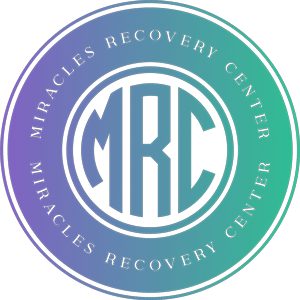Heroin Addiction Treatment

Compassionate, Medically Supported Heroin Recovery
Heroin addiction affects every aspect of life — physical health, emotional balance, and relationships. Our Heroin Addiction Treatment program provides a safe, structured path toward long-term recovery through medical supervision, therapy, and evidence-based care.
At Miracles Recovery, we help clients break free from the cycle of dependency, heal underlying trauma, and rebuild stability and purpose.
Understanding Heroin Addiction
Heroin binds to the brain’s opioid receptors, producing intense euphoria followed by dependence and withdrawal. Many individuals begin using prescription opioids before transitioning to heroin due to cost or availability. Over time, the brain becomes chemically dependent, making professional treatment essential for recovery.
Our approach combines medication-assisted treatment (MAT), clinical therapy, and holistic care to restore both body and mind.
Signs of Heroin Addiction
When mental health and addiction are treated separately, underlying causes often go unaddressed. Integrated dual diagnosis care provides:
- Constant cravings and preoccupation with use
- Track marks or visible injection sites
- Severe withdrawal symptoms (nausea, sweating, shaking, anxiety)
- Financial, legal, or relationship problems
- Isolation and changes in behavior or hygiene
- Loss of motivation, depression, or fatigue
Safe, Structured Heroin Addiction Treatment
Our program provides comprehensive medical and therapeutic support through multiple levels of care:
Treatment Options Include:
Partial Hospitalization Program (PHP)
Daily clinical and psychiatric support for stabilization and structure.
Intensive Outpatient Program (IOP)
Multiple therapy sessions per week for ongoing accountability.
Evening IOP
Flexible schedule for working professionals and parents.
Outpatient Treatment (OP)
Continued care and relapse prevention after higher levels of treatment.
Medication-Assisted Treatment (MAT)
MAT helps clients safely manage withdrawal and reduce cravings while participating in therapy. Under licensed medical supervision, medications such as buprenorphine or naltrexone may be prescribed as part of a long-term recovery plan.
MAT is always paired with therapy to ensure physical stability and emotional healing.

Evidence-Based Therapies
Our heroin treatment program integrates multiple evidence-based modalities for comprehensive recovery:
Cognitive-Behavioral Therapy (CBT)
Reframes thoughts and behaviors related to addiction.
Dialectical Behavioral Therapy (DBT)
Builds mindfulness and emotional control.
Trauma-Informed Therapy
Addresses past experiences that contribute to substance use.
Motivational Interviewing (MI)
Strengthens internal motivation and accountability.
Family Therapy
Rebuilds trust and communication within family systems.
Relapse Prevention Planning
Equips clients with coping strategies for long-term sobriety.
Holistic and Psychiatric Support
We believe in treating the whole person — not just the addiction.
- Psychiatric evaluation and medication management
- Nutrition and wellness counseling
- Sleep and stress management
- Mindfulness, yoga, and relaxation techniques
- Case management and aftercare planning

Why Choose Our Heroin Addiction Program
- Safe, medically supported detox and recovery process
- Licensed clinicians and psychiatric providers
- In-network insurance and transparent financial options
- Trauma-informed, judgment-free environment
- Flexible day, evening, and weekend scheduling
- Lifelong alumni and community support
What To Expect
Comprehensive medical and psychological assessment to develop a treatment plan.
Stabilization with medical oversight and optional MAT.
Daily or weekly therapy focusing on relapse prevention and emotional recovery.
Transition to lower levels of care as independence and stability increase.
Aftercare and alumni connection for long-term success.
